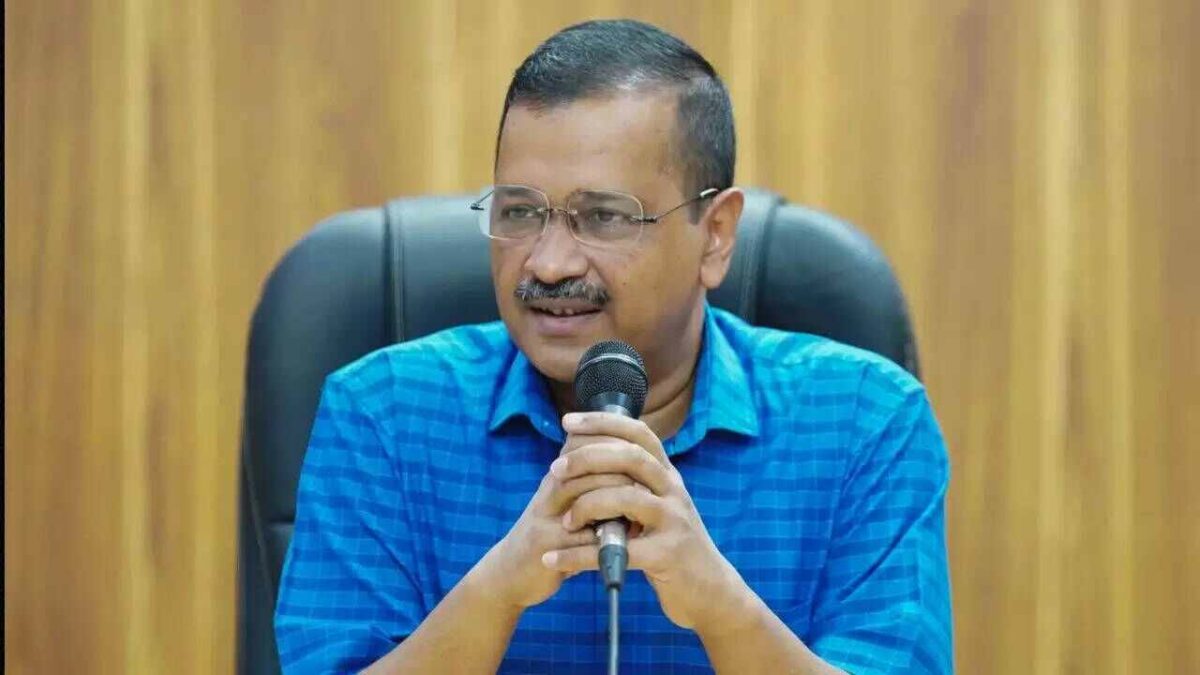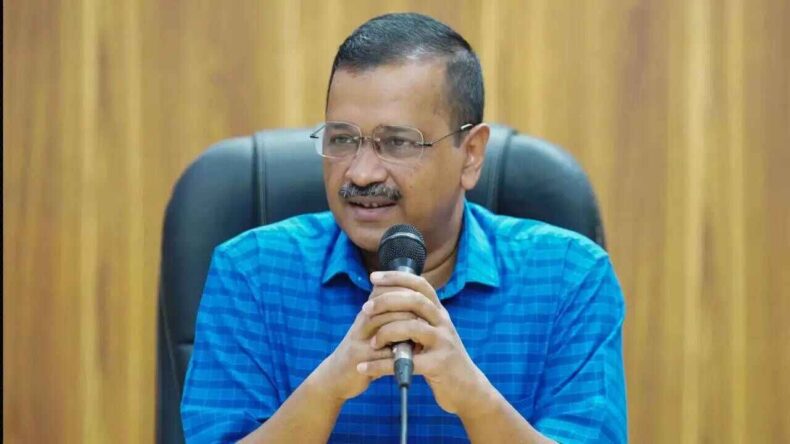Kejriwal anticipates a pre-2024 semi-final if Rajya Sabha rejects the LG-enabling ordinance.
In a recent statement, Delhi Chief Minister Arvind Kejriwal indicated that the rejection of the ordinance empowering the Lieutenant Governor (LG) in the Rajya Sabha could potentially mark a significant political milestone, resembling a “semi-final” event ahead of the 2024 elections. This statement highlights the potential implications of the Rajya Sabha’s decision and sheds light on the political dynamics surrounding the ordinance and its potential consequences.
The context of this statement lies in the power dynamics between the elected government of Delhi and the office of the Lieutenant Governor. In recent years, there have been debates and disagreements regarding the distribution of powers and decision-making authority between these two entities. The Lieutenant Governor, appointed by the central government, holds significant control over various administrative matters in the National Capital Territory of Delhi.

The Delhi government, led by Arvind Kejriwal’s Aam Aadmi Party (AAP), has been pushing for greater autonomy and decision-making authority for the elected government. They argue that the Lieutenant Governor’s powers should be limited to reserved subjects like public order, police, and land. On the other hand, the central government and the Lieutenant Governor’s office assert that the LG has discretionary powers and can intervene in matters of administration, thereby maintaining a balance between the elected government and the central authority.
The proposed ordinance aims to strengthen the powers of the Lieutenant Governor, potentially granting the office greater control over the functioning of the Delhi government. However, for the ordinance to become law, it must be approved by both houses of the Indian Parliament – the Lok Sabha and the Rajya Sabha.
Kejriwal’s statement suggests that if the ordinance fails to garner support in the Rajya Sabha, it would signify a significant political turning point, akin to a “semi-final” event preceding the 2024 elections. The reference to a “semi-final” metaphorically signifies a critical stage or milestone in the political landscape, indicating that the outcome of the Rajya Sabha’s decision could have far-reaching implications for the upcoming elections and the political future of Delhi.
The Rajya Sabha is the upper house of the Indian Parliament and plays a crucial role in the legislative process. Its members are elected by the members of State Legislative Assemblies, making it a representative body of the states and union territories of India. Any legislation or ordinance, including the proposed ordinance empowering the Lieutenant Governor, requires the approval of both the Lok Sabha and the Rajya Sabha to become law.
Kejriwal’s emphasis on the Rajya Sabha’s rejection of the ordinance indicates the significance he attaches to the upper house’s role in shaping the political landscape. It suggests that the decision of the Rajya Sabha could potentially challenge the existing power dynamics and pave the way for greater autonomy and decision-making authority for the elected government of Delhi. This aligns with the long-standing demand of the AAP government, which has been advocating for more control over administrative matters and policy implementation in Delhi.
The 2024 elections hold crucial importance for all political parties in India, including the AAP. The outcome of these elections will determine the future leadership and direction of the country. Kejriwal’s statement implies that the rejection of the ordinance by the Rajya Sabha could set the stage for a political battle or contestation that would have significant implications for the electoral landscape in Delhi.
It is important to note that Kejriwal’s statement does not provide specific details about the nature of the “semi-final” event that would occur if the ordinance is rejected. It is open to interpretation and could refer to various scenarios, such as increased political mobilization, legal challenges, or public discourse surrounding the autonomy of the Delhi government. The actual impact and consequences of the Rajya Sabha’s decision would unfold in the coming months as the political landscape evolves.
In conclusion, Arvind Kejriwal’s statement regarding the rejection of the ordinance empowering the Lieutenant Governor in the Rajya Sabha sheds light on the ongoing power struggle between the elected government of Delhi and the central authority. His reference to a “semi-final” event ahead of the 2024 elections underscores the significance he places on the upper house’s decision and its potential implications for the political future of Delhi.
The rejection of the ordinance in the Rajya Sabha could set the stage for significant political developments, potentially reshaping the power dynamics and autonomy of the Delhi government. The actual outcomes and consequences of this decision would unfold in the months leading up to the 2024 elections, shaping the political landscape and determining the path ahead for the AAP and other political players in Delhi.












